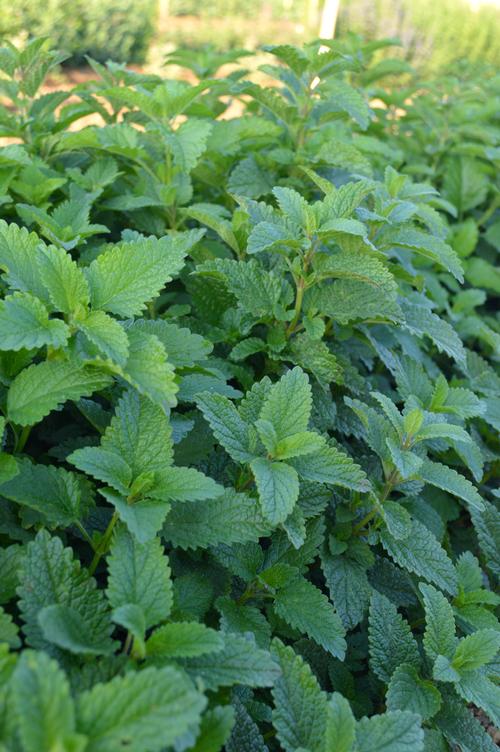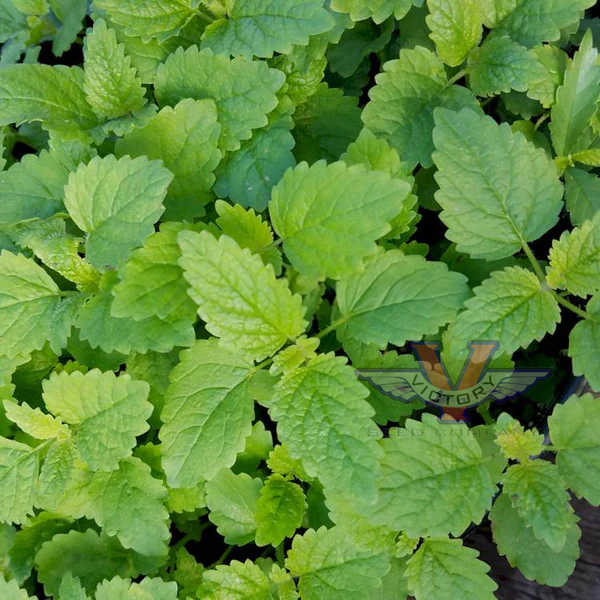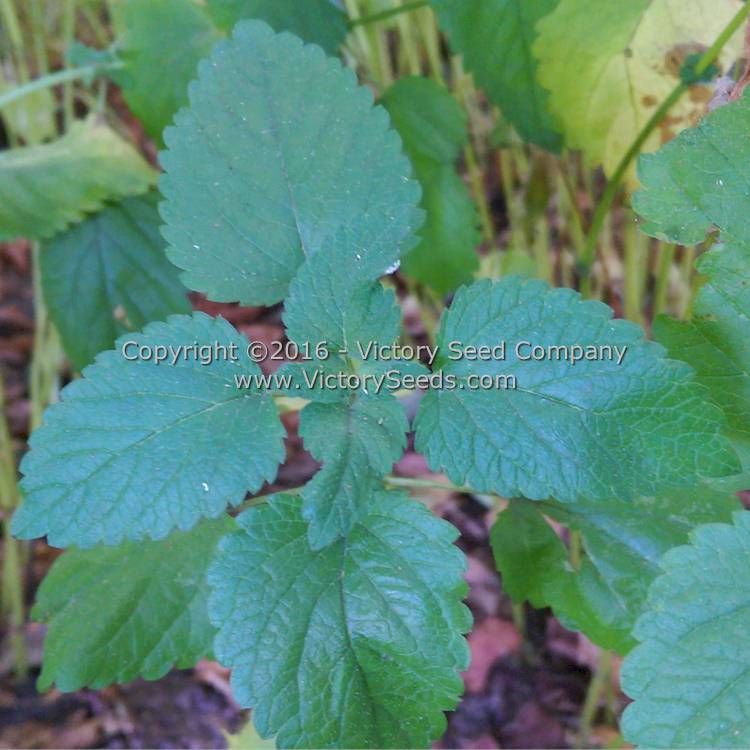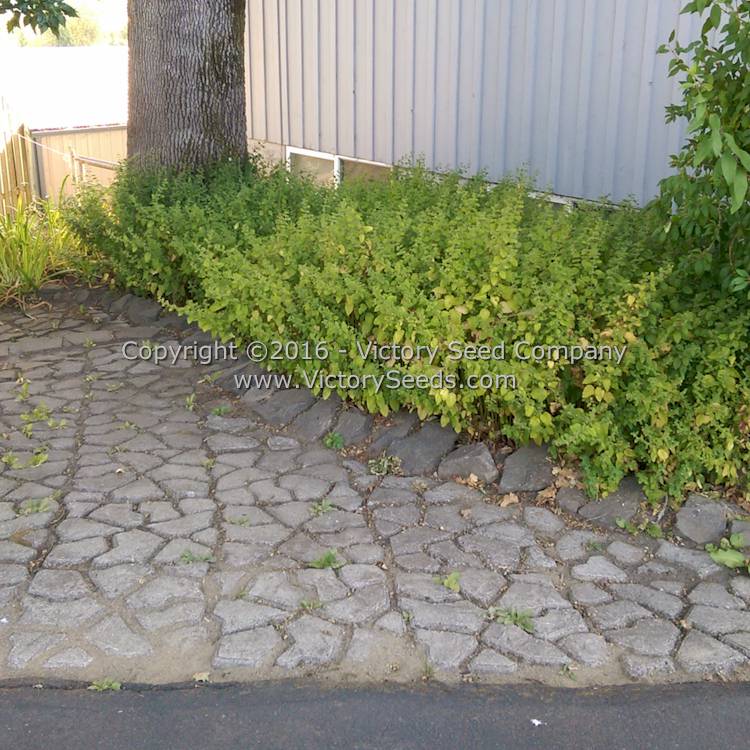Lemon Balm
Lemon Balm
Regular price
$2.75 USD
Regular price
Sale price
$2.75 USD
Unit price
per
Shipping calculated at checkout.
Couldn't load pickup availability
Lemon Balm
Melissa officinalis
Melissa officinalis
'Lemon Balm' is an ornamental plant that grows up to twenty-four inches tall and makes a really nice border along well-traveled walkways; brushing by the plants releases a wonderful lemony aroma into the air. It flowers from the late summer into early fall and attracts honey bees and other pollinating insects.
Also known as "Common" or "Sweet" balm, 'Lemon Balm' was used by the ancient Greeks and Romans, was introduced into Spain in the 7th century, from where it spread into Europe where it is documented as being domesticated and cultivated as early as the 1500s. Since it was an important plant in herb gardens, it was brought to North America with the earliest settlers and was documented as being grown at Monticello by Thomas Jefferson in his 1794 herb list.[3]
Lemon Balm is one of the ingredients included in the secret recipe of the protected "Spreewald Gherkins," called Spreewälder Gurken or Spreewaldgurken in German, which are a specialty "pickle" from Brandenburg, Germany. Lemon Balm is used as a culinary ingredient to impart a light, lemony flavor to fruit dishes, candies, salads, pasta, fish, chicken, marinades and sauces.
'Lemon Balm' is the main ingredient of "Carmelite Water," ("Eau de Carmes") also referred to as "Melissa Water" ("Eau de Mélisse"), it is an alcoholic elixir that has been in constant production for hundreds of years and is still sold, primarily in pharmacies, as a comforting and invigorating tonic ideal for digestive problems, fatigue, hot flashes, stress, and motion sickness.
Modern studies indicate that hot water extracts (decoctions) have antiviral effects against mumps and herpes. Extracts are mildly sedative and so promise for treating anxiety and as a sleep aid. Because of this, Lemon Balm should be used cautiously when combining with sedative substances to avoid over sedation. Use caution when combining alcohol and Lemon Balm to minimize sleepiness. You should also exercise caution when driving or operating dangerous equipment.[4]
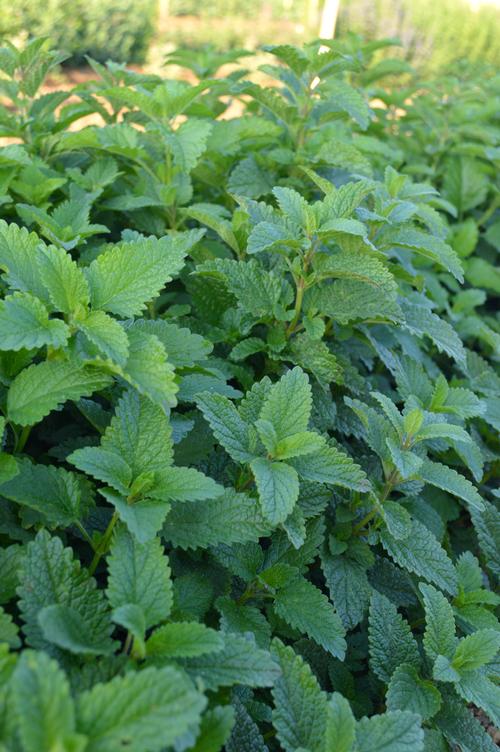
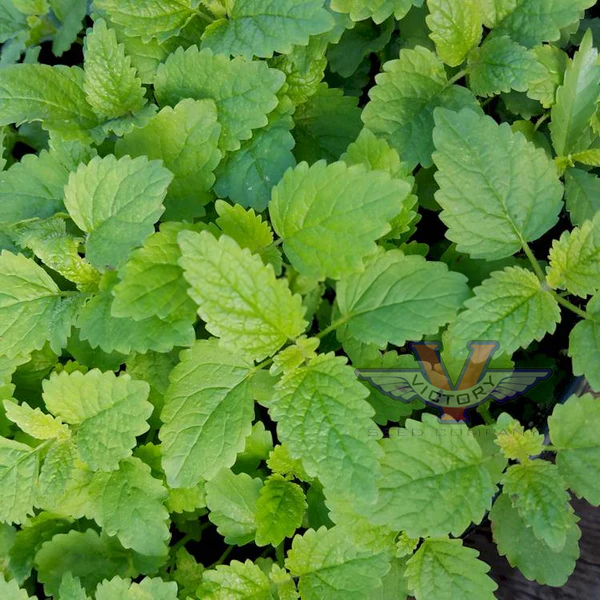
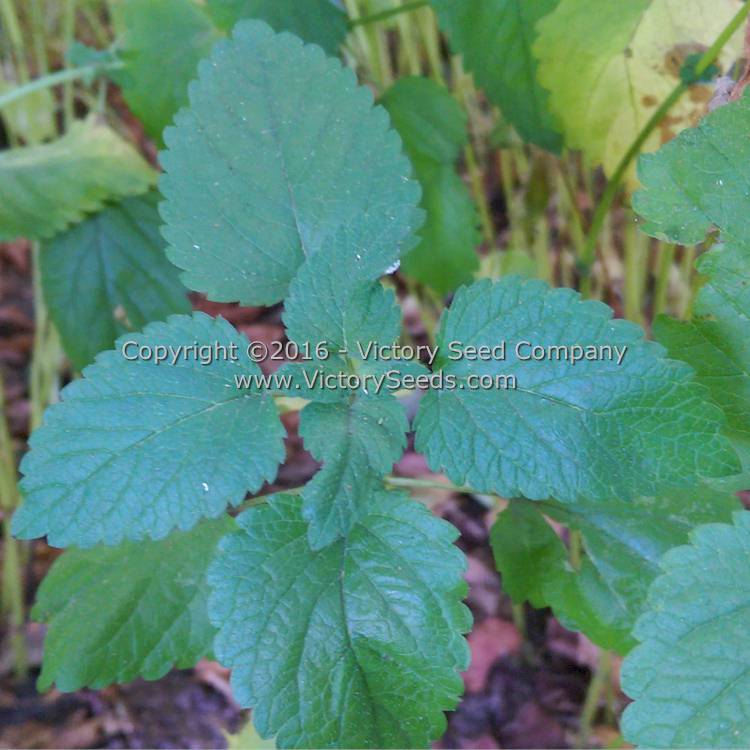
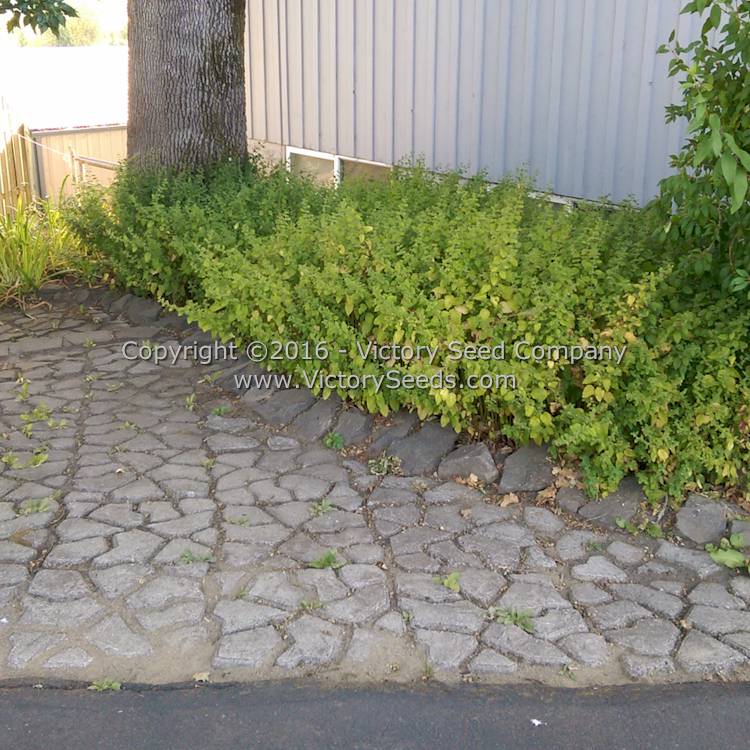
'Lemon Balm' germinates best at a soil temperature of 68°F (20°C) and
requires light. Either start seeds indoors, under controlled conditions,
or sow in a location that receives partial shade to full sun and has
well-drained, fertile, moist soil. Whether starting indoors or directly
in the garden, surface sow and carefully water so that they make contact
with the soil but still are exposed to the light.
Once established, 'Lemon Balm' grows in clumps which spread, or they can be divided to increase your planting. They also are , as well as by seed. In mild temperate zones, the stems of the plant die off at the start of the winter, but shoot up again in spring.It is in the mint family, will spread, so should be grown in a location that will contain it.
The Victory Seed Company does not advocate medical self-diagnosis or self-medication. Reference to the medicinal properties of plants are described here for educational and historical purposes only and are not to be construed as a prescription, prognosis or diagnosis for any disease or illness. As with any remedies or medicines, you should consult your personal health care provider before using.
Informational References:- "A Modern Herbal," Mrs. Maude Grieve, 1931, p. 76-77.
- "Lemon Balm: An Herb Society of America Guide," The Herb Society of America, Kirtland, Ohio, 2007. [PDF]
- "Thomas Jefferson's Garden Book: 1766-1824, With Relevant Extracts From His Other Writings," annotated by Edwin Morris Betts, The American Philosophical Society, 1985.
- "Tyler's Honest Herbal: A Sensible Guide to the Use of Herbs & Related Remedies," Steven Foster & Varro E. Tyler, Ph.D., MJF Books, New York, 1999.
Explore our vegetable collections:
[ Artichokes | Asparagus | Beans | Beets | Broccoli | Sorghums | Brussels Sprouts | Cabbage | Cantaloupe | Carrots | Cauliflower | Celery | Collard Greens | Corn | Cucumber | Eggplant | Endives | Gourds | Kale | Kohlrabi | Leeks | Lettuce | Mesclun Mix | Mustard Greens | Okra | Onions | Parsley | Edible Pod Peas | Garden Peas | South Peas | Hot Peppers | Mild Peppers | Pumpkins | Radishes | Rapini | Rhubarb | Salad Greens | Salsify | Summer Squash | Winter Squash | Swiss Chard | Tomatillo | Tomatoes | Dwarf Tomato Project | Turnips | Watermelons ]

